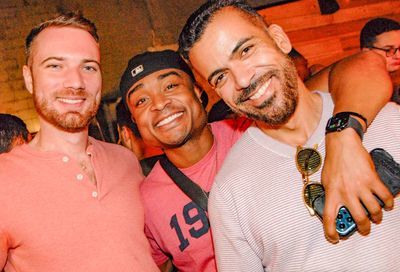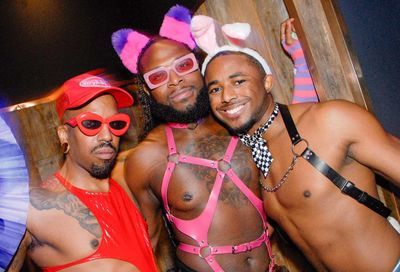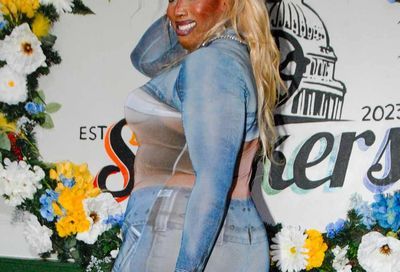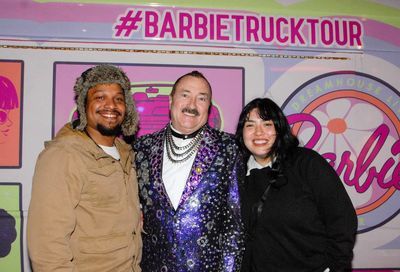Mountain State Milestone
West Virginia gets first statewide GLBT-advocacy organization
Regardless of what the superstitious might say, Friday the 13th was a very lucky day in West Virginia.
”Today, in the State Senate, we passed ENDA (Employment Non-Discrimination Act),” Stephen Skinner said March 13, referring to Senate Bill 238, now facing a House battle to protect West Virginians against housing or employment discrimination based on sexual orientation. ”We sort of timed our public announcement to coincide with this.”
That public announcement is the one telling everyone that West Virginia, whose border rests little more than 50 miles from the District’s, now has a statewide organization fighting for GLBT equality: Fairness West Virginia.
Adding that Fairness has already been up and running behind the scenes — ”zeroing in on lobbying like a laser” — Skinner, founder and president of Fairness, says there is more to this new organization than getting things done in the state capital, Charleston.
”To have people who have deep roots in West Virginia self-identify as gay is going to have a huge impact,” he says. ”That goes back to the politics of being out. If a [gay] 13-year-old sees doctors [and] lawyers being out, then we have made a difference.”
Whatever differences Fairness may make, there is no doubting that there is interest in the nascent organization. A pledge to have 1,000 supporters registered within three weeks of going live has been well surpassed, at least in terms of Facebook buddies.
A more tangible measure of this new force may be its 12-member board of academics, attorneys, entrepreneurs, philanthropists and veterans, many of whom have ties to Washington. Skinner, 40, is among them, maintaining an apartment in the District, though he practices law at his family’s firm in Charles Town and resides primarily in Shenandoah Junction, W.Va.
”Part of the reason I wanted to come back was to make a difference in West Virginia,” says Skinner, who returned to West Virginia in 2004, after years in D.C. and New York City. With roots in West Virginia at least 250 years deep and a family business to support, there was an obvious pull for Skinner. But he says he’s also hoping that Fairness will get a big boost from outside the state as well, offering a nod to former West Virginians who’ve made their fortunes elsewhere.
Adam Smith, who lived all his life in the same Parkersburg, W.Va., home until he left for college in North Carolina, fills the bill. Today, he’s living in D.C., working as the Web-content editor at the American College of Obstetricians and Gynecologists. He’s also a member of the Fairness board.
”I know a lot of gay and gay-friendly people who still feel really tied to the state. We all feel really connected to West Virginia,” Smith says of his fellow transplants, adding that he also feels a responsibility to not just advance equality in West Virginia, but to work for those who he feels certain did not have as easy a time as he did coming out a decade ago. He was 16.
”I did not have a lot of problems,” he says. ”I got a few sneers. People would say things, but I was never scared. That’s why I’m so interested in Fairness. I was lucky, but I think others aren’t so lucky.”
Amanda Marano King, a Charleston attorney, has a somewhat different perspective than Skinner or Smith, or any of her fellow board members for that matter. She may also have her Washington ties — Georgetown University class of ’99 — but unlike the rest, she’s straight.
”I had a second cousin who was gay and struggled with his family,” King, 32, recalls from her West Virginia youth. ”I remember that being an issue with some of my parents’ family.”
King says she was brought onboard through her relationship with a gay student at West Virginia University College of Law, with whom she studied transgender legal issues. That fellow student was Kevin Waldo, who also serves on the Fairness board.
”As a woman, people fought for my rights. There should be no difference,” King reasons. ”[GLBT equality] is an important, basic, human right. It’s of top importance. … There are West Virginians who’ve had to leave West Virginia because they don’t feel like they have a place in the state.”
While Smith may be one of the state’s emigrants, though he makes it back to visit family regularly, it’s obvious that like Skinner and King he may one day return to his home state.
”I love West Virginia,” he confirms. ”The people there are the nicest you’ll ever meet. I know all the West Virginia jokes. They’re obnoxious, but we take it in stride. We’re nice people — and it’s a beautiful state.”
Support Metro Weekly’s Journalism
These are challenging times for news organizations. And yet it’s crucial we stay active and provide vital resources and information to both our local readers and the world. So won’t you please take a moment and consider supporting Metro Weekly with a membership? For as little as $5 a month, you can help ensure Metro Weekly magazine and MetroWeekly.com remain free, viable resources as we provide the best, most diverse, culturally-resonant LGBTQ coverage in both the D.C. region and around the world. Memberships come with exclusive perks and discounts, your own personal digital delivery of each week’s magazine (and an archive), access to our Member's Lounge when it launches this fall, and exclusive members-only items like Metro Weekly Membership Mugs and Tote Bags! Check out all our membership levels here and please join us today!




















